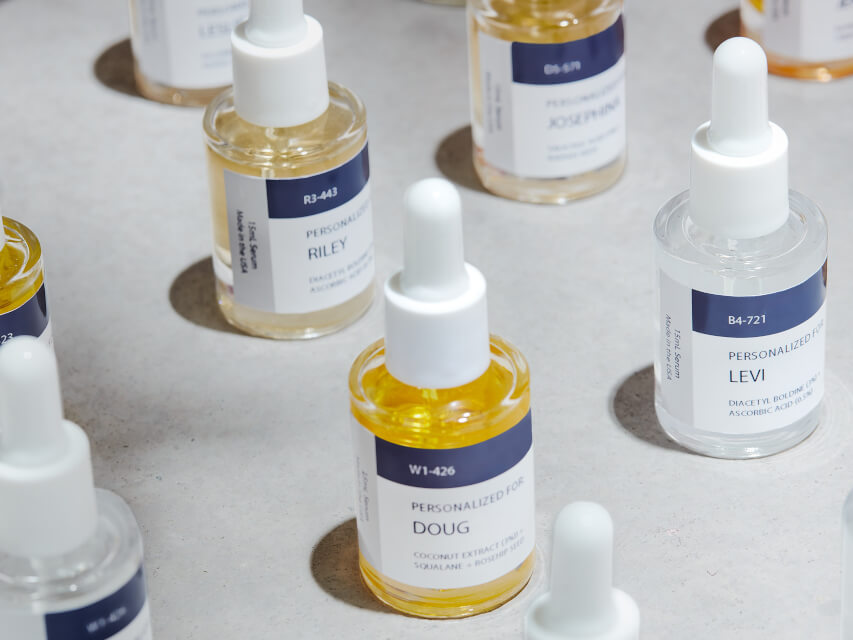- Atolla, a direct-to-consumer skin-care brand, just patented its algorithmic process which creates personalized facial serums for customers, according to WWD.
- The product, a $45-per-month facial serum, is customized (and constantly improving) for each customer thanks to an at-home test taken monthly via mobile phone.
- The patent underscores the rise of customization as luxury in the beauty sector and forecasts where the high-end skin-care market might be heading.
- Visit Business Insider’s homepage for more stories.
These days, algorithms customize everything from our social media feeds to our bra sizes – and that trend of hyper-personalization is manifesting in the beauty industry, too.
In makeup, there’s Shiseido and Lancôme’s Le Teint Particulier, which let you customize the perfect shade of foundation for you. In hair, there’s Prose and Function of Beauty, which let you customize your shampoo formula.
And now, in skin-care, there are personalized facial serums.
WWD’s Allison Collins reports that direct-to-consumer skin-care brand Atolla just patented a process to analyze customers’ skin and create individualized facial serums for them.
Atolla, a single-product brand cofounded by two MIT grads and a Boston-based dermatologist named Ranella Hirsch, measures and tracks different factors impacting skin health (including mood and stress, hydration, sensitivities, lifestyle, and more) once a month with a self-administered test. The test, which takes roughly 10 minutes, is a combination of survey questions answered on a mobile phone and physical sensors which measure oil, moisture, and pH levels.
http://instagr.am/p/B1J76ssHy_1
The test dictates what goes into the formula of the personalized serum, which can potentially change from month to month. The overall cost is $45 per month, which includes the testing, the shipping, and the 25-milliliter bottle of serum, meant to be used twice a day for 30 days.
"As we continue to scale, our algorithm is constantly iterating and getting smarter," cofounder Meghan Maupin told Allure in April 2019. "Ultimately, we expect to know your skin so well that we'll know how it'll change over a year, which means you can prevent unwanted changes instead of just reacting to them."
That value proposition is what makes this kind of high-tech personalization the next frontier for skin-care. "The serum changes with you over time to hit the goals and outcomes you have in mind for your skin," Hirsch told WWD.
It's getting easier to eschew one-size-fits-all approaches to beauty, and patents for "smart" personalized products and processes are just the beginning.

